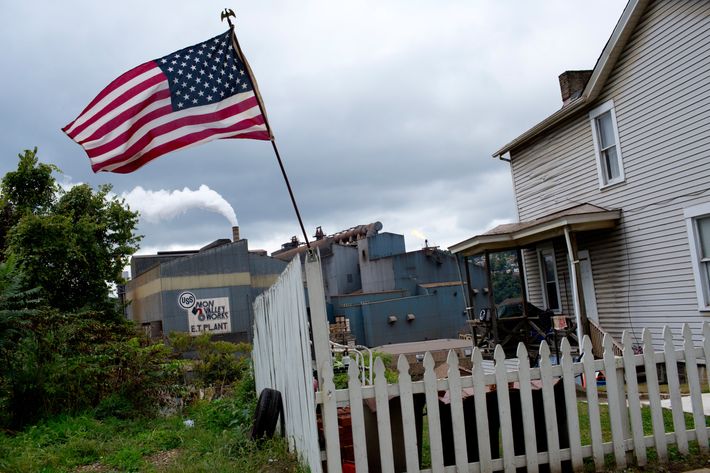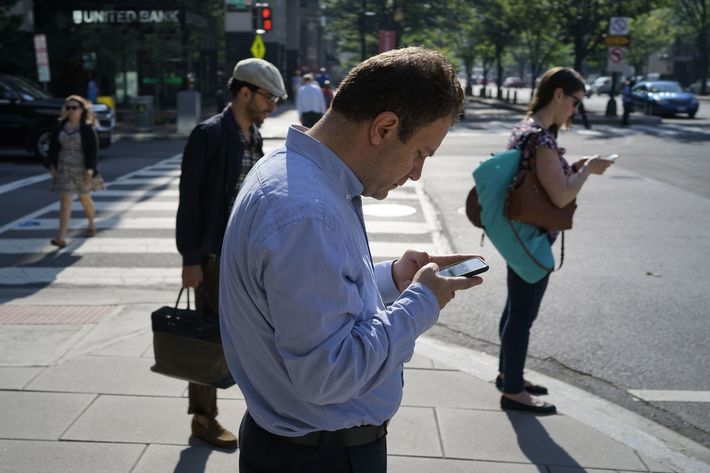
After the terror, the smile. It suddenly beams, and the voice calms. You feel the warmth again and are momentarily overcome with gratitude and relief. Suddenly, all the man’s malice and rage and narcissism disappear and the world turns suddenly normal. And you thrill to that normality. It’s what you’ve craved for so long, and been denied for so long. You forgive. You hope. You wonder if all the fear and dread you felt only a few moments ago were just in your imagination.
Any victim of an abusive spouse knows this dynamic. And now America is getting used to it. The Donald Trump who put on his grown-up voice last Tuesday night, and fit into a reassuringly familiar ritual of civic democracy, was the very same Donald Trump who had spent much of his first month in office in a series of unprecedented dyspeptic fits against the media, NATO allies, illegal aliens, Meryl Streep … well, you know the list by now. For the first time in public, he spoke in his “indoor voice.” He occasionally smiled, even as he can’t quite rid himself of the Mussolini back-step whenever he earns his craved applause. He used a teleprompter. And of course the media swooned. Who wouldn’t at this point? It’s somewhat unfair to lambaste them for their instant acknowledgment of the speech’s success. It was a success — an emotional blast of pseudo-normality for a serial abuser of liberal democratic norms.
It was an irresistible moment when the foreboding and fear suddenly became sunlit uplands in a near parody of political happy talk: “Dying industries will come roaring back to life. Heroic veterans will get the care they so desperately need. … Crumbling infrastructure will be replaced with new roads, bridges, airports, and railways gleaming across our beautiful land.”
“Beautiful.” He loves that word. You always know when Trump is putting on the charm — because he randomly attaches it to anything. And it’s all a complete fantasy, of course — a campaign speech without the snarl or chants, a rapture with absolutely no explanation of how this new beautiful world will be paid for, or legislated. But it works because it’s such a dramatic switch, and for a moment, even Jake Tapper’s amygdala seemed flooded with relief.
For a moment. A little less than 24 hours, to be precise. We can all now thank Jeff Sessions for bringing us back, bumpily, to the far more sinister reality.
And he lied, of course. And I don’t mean in the speech itself. He lied directly to the faces of the media muckety-mucks that afternoon, telling them that he was going to embrace some kind of immigration reform. For a few hours, much of the press duly reported this — until they heard the speech itself, which did no such thing. The lie, we were told, was a “misdirection,” in order to get some favorable coverage from the media that afternoon. But think about that for a minute. This wasn’t a trial balloon, delivered by some anonymous sources to see the impact of a potential policy. This wasn’t even a defensible fib, for national-security reasons. It was an outright lie from the president himself in order to delegitimize the press. If the New York Times or the evening news reports something completely untrue — indeed refuted just a few hours later — what happens to their credibility? Bannon is not kidding when he describes the free press as the opposition. For shameless demagogues, it always is. And this creepily authoritarian administration will happily lie to its face.
I’ve always been unusually attached to places. It’s one reason I still call myself a conservative. Travel doesn’t attract me. I’ve now lived in the same loft in D.C. since I bought it, in 1991 (apart from an ill-fated year and a half in New York City); I’ve spent 20 consecutive summers in the same little town at the end of Cape Cod, and have no desire to go anyplace else. Even when I go home to England, I tend to spend around half my time near where I grew up.
I wouldn’t go so far as Malcolm Muggeridge, who famously said: “Travel, of course, narrows the mind.” (Don’t you love that “of course”?) But I would say that the reverse can also be true. Staying put allows you to really get to know a place deeply at different times and in different seasons, to capture, often serendipitously, a small detail you’d never seen before, or arrive at a street corner and suddenly remember that this was where you first met an old friend.
But staying home brings grief with it as well. Everything changes, and when your beloved tree at the end of the street is cut down, or a new Safeway replaces the corner baker, or, more fatally, the factory that used to be the linchpin of the place lies empty and crumbling, it stings and wounds and demoralizes. When I’ve visited my own hometown in England, so much is the same. And yet, on closer inspection, many of the once-vibrant shops are selling secondhand clothes, or given over to real estate offices. My old church has a broken window where the rain comes in. The services have dwindled to near nothing. Maybe it’s being away for so long, but it seems familiar and yet a little empty, as if something in it has somehow died, a continuity somehow lost.
And more and more, I suspect, the shifting winds of this merciless global economy and the impact of mass migration are bringing about similar changes all over the West. This beautiful but deeply sad story about how a provincial town in France has slowly died — as its young people flocked to cities, as its shops were supplanted by a supermarket, says a lot about the moment we are in: “Down another street is the last toy store, now closed, and around a corner is the last independent grocery store, also shuttered. Walk down the empty, narrow streets on some nights and the silence is so complete that you can hear your footsteps on the stones.” The town, Albi, is not alone.
In America, as Charles Murray has shown in his extraordinary book, Coming Apart, the young and the smart and the talented — the people who would once have formed the core of these small towns — have long since fled to distant colleges and cities. They don’t come back. They would once have been the police chief or the town librarian or the school principal. They once helped make the town a well-run place with a clear identity, where the same families and networks lived together, died together, belonged together. These connections have attenuated … as economics supplants culture, as efficiency erases the individuality of inefficient places, as Amazon rips the heart out of shopping districts, as the smartphone removes us from physical space, and as many more immigrants and their culture alter the feel of a place in ways that disorient those with memories and loyalties.

I don’t think we can understand the politics of this moment — Brexit, Trump, Le Pen — without noticing this abiding sense of loss. The middling city and small town are going the way of the middle class. Patterns of farming in rural America are being devastated. I loved this English farmer’s account of the changes he is seeing: “The future we have been sold doesn’t work. Applying the principles of the factory floor to the natural world just doesn’t work. Farming is more than a business. Food is more than a commodity. Land is more than a mineral resource.”
Jobs are vital not simply because of money — but because they give lives meaning, a meaning that now seems so remote people medicate themselves with opiates. People are grieving for a lost way of life. This is not racist or retrograde or even backward. It is, rather, deeply human. For it is in these places that a deeper identity forms, that Americanness, Britishness, la France profonde, endures. And what we’re seeing right now, across the developed world, is a bid to retain the meaning of a culture and a way of life in the headwinds of faceless, placeless economics.
Nationalism is one response. The answer to it is not globalism, which is as cold as it is remote, but patriotism, that love of country that does not require the loathing of other places or the scapegoating of minorities or a phobia of change, that confident identity that doesn’t seek to run away from the wider world but to engage it, while somehow staying recognizable across the generations. If the Democrats hope to come back, that patriotism is going to have to define them once again. But can they get past their racial and sexual and gender obsessions and reach for it?

Since I wrote about digital addiction, I’ve been constantly and understandably asked what might be the antidote. Well, here’s one: the dumbphone. Nokia is now making the once-beloved 3310 model again — and the new ones look pretty cool. You can call and text but you’re not carrying around that addiction device called a tiny mobile computer. They’re a fraction of the cost of a smartphone — and have a variety of uses, as this great review in The Atlantic explains. You can use it in places where a smartphone might be easily damaged; or as a replacement for the home landline; as a way to stay in touch while staying sane. Sadly, the new ones aren’t yet available in the U.S. — but the demand, I suspect, could be huge. Think of them like the extraordinary revival of vinyl for music — a return to the actual pleasure of a simple activity, a reminder that change isn’t always for the better, that the past is always retrievable in the present. We don’t have to be trapped in our culture. We can choose to defy it. Increasingly, it seems to me, we must.





























